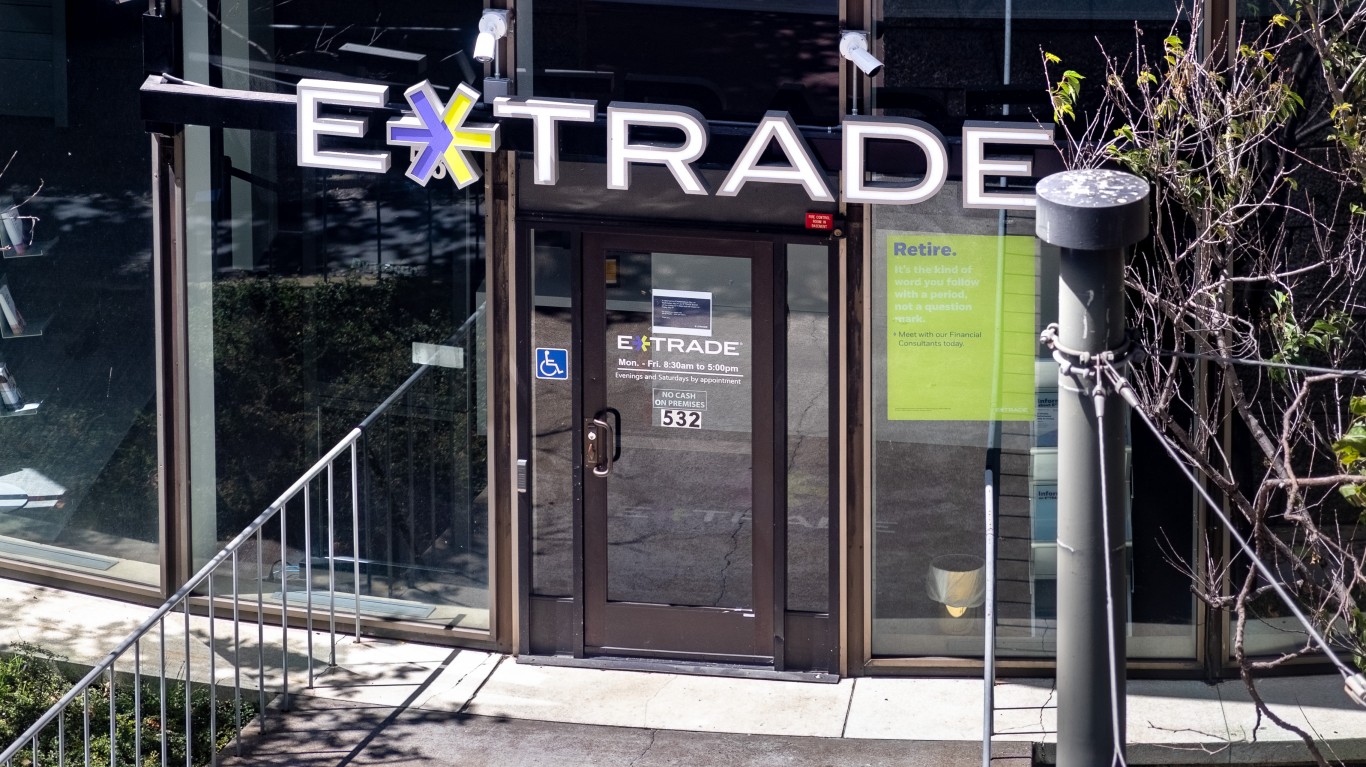

Bank of America Corp. (NYSE: BAC) reported third-quarter 2019 results before markets opened Wednesday. The big bank reported diluted earnings per share (EPS) of $0.56 on revenue of $22.8 billion. In the same period a year ago, it reported EPS of $0.66 on revenue of $22.93 billion. Third-quarter results also compare to the consensus estimates for EPS of $0.51 on revenue of $22.79 billion.
The bank’s EPS includes a $0.19 per share impairment charge of $2.1 billion related to a joint venture with Fiserv Inc. (NASDAQ: FISV) in its merchant services business.
Net income fell from $7.2 billion in the same period a year ago to $5.8 billion (including the impairment charge) while net interest income rose by 1% ($126 million) and non-interest income dipped by $43 million. Income tax expense dropped from $1.83 billion to $1.08 billion. Non-interest expense rose by $2.16 6illion to $15.17 billion (including impairment charge).
Credit loss provision totaled $779 million in the quarter, up by $63 million compared with the same period in 2018. In the global banking division alone, credit loss provision rose from a gain of $70 million a year ago to an expense of $120 million. Bank of America said the increase was “driven primarily by the absence of 3Q18 reserve releases, primarily from energy exposures.”
Net charge-offs decreased by $121 million to $811 million, and the net charge-off ratio dropped from 0.40% to 0.34% year over year.
CEO Brian Moynihan said:
In a moderately growing economy, we focused on driving those things that are controllable. We made continued strong investments in our capabilities to serve customers, more relationship management teammates, more and refurbished branches and offices, and more digital capabilities, all while core expenses are flat. Our client activity, the expansion of our client base, and our ability to gain market share across most of our businesses in the quarter, all reflect responsible growth.
The bank did not provide guidance in its earnings release. The consensus estimate for fourth-quarter EPS is $0.70 on revenues of $22.52 billion. For the full 2019 fiscal year, the consensus calls for EPS of $2.65 on revenues of $91.6 billion. Consensus estimates for both annual EPS and revenues have declined since the end of the second quarter.
The dissolution of the bank’s joint venture was announced in late July, and even though the charge came in at the high end of the range, investors had plenty of time to adjust. Add to that Warren Buffett’s apparent interest in boosting his ownership of the shares beyond the 10% limit for passive investors. Bank of America shares added 2% on Tuesday after that report broke.
Shares traded up by more than 2% in the premarket Wednesday to $30.40. The current 52-week range is $22.66 to $31.17. Analysts had a 12-month consensus price target of $32.78 before results were announced.
Thank you for reading! Have some feedback for us?
Contact the 24/7 Wall St. editorial team.
 24/7 Wall St.
24/7 Wall St.


